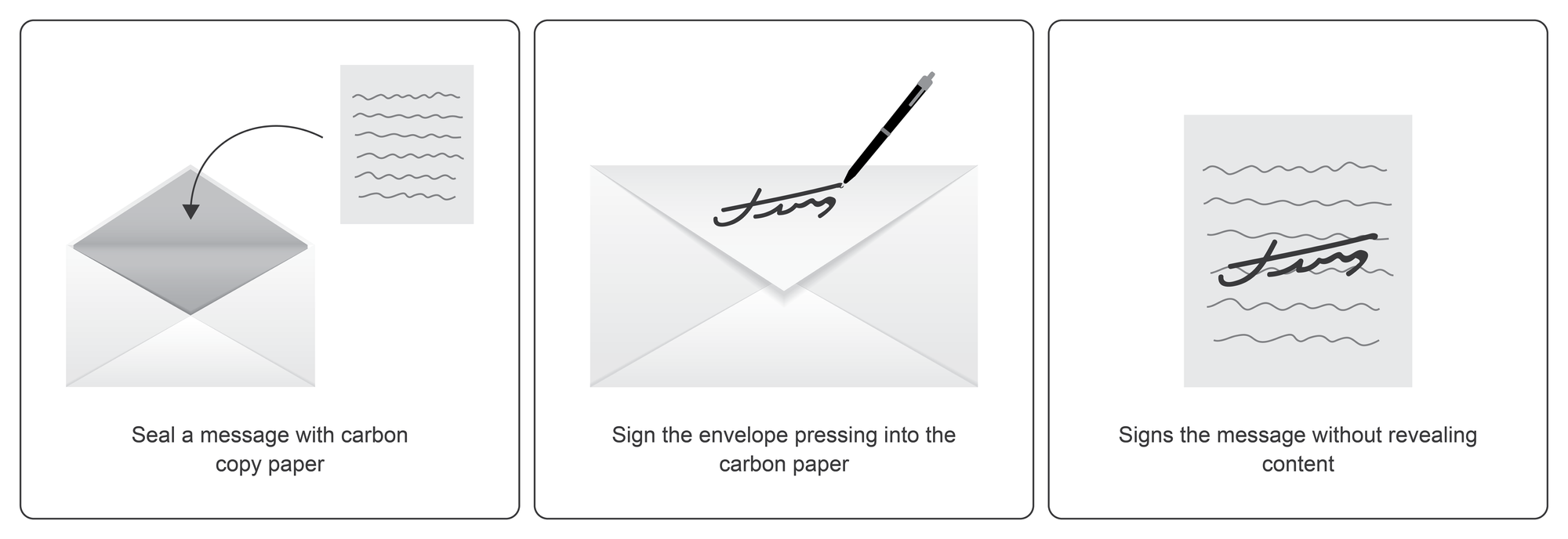Blind signatures
Blind signatures are a signature scheme that provides anonymity by allowing one party to sign a transaction without learning the details of the transaction.
Blind signatures were first introduced by David Chaum in 1982 for an early digital currency system known as eCash, in which they enabled a trusted party to issue and redeem coins without knowledge of who spent those coins.

Today, in Bitcoin, with the use of ECDSA, blind signatures make transactions more secure. Funds can be locked with friends or family in an M-of-N multisignature transaction, and when these parties later unlock funds, they do not see which transaction they signed nor how much money was involved. Blind signatures are also used in various Bitcoin layer-2 solutions, such as when minting and redeeming notes in Fedimint and the Confidential Transactions feature in Liquid.
Blind signatures have applications beyond just Bitcoin too. For instance, they are commonly employed in electronic voting systems for transparent public vote tallying without compromising voter privacy.
Read the original whitepaper by David Chaum here.